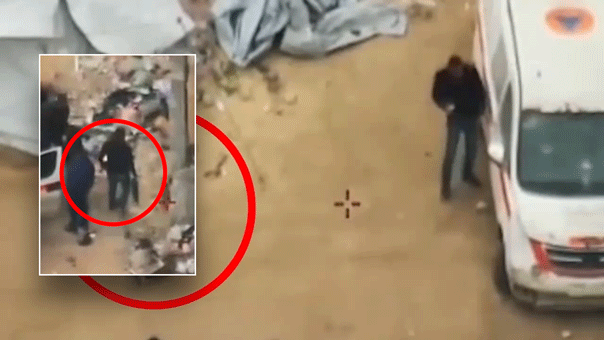Coronavirus global effect: Countries shutter their borders to contain its spread
Economist, former Naval Intelligence Officer John Jordan joins ‘America’s News HQ.’
Authorities in India have ramped up efforts to curb the spread of coronavirus, closing key tourist sites and even stamping people with the dates they should remain quarantined to avoid infecting others.
While Indian officials said Tuesday they would not widely expand testing for the COVID-19 in the world's second-most populous country, they did enlarge the population eligible for testing to include health care workers with symptoms who are treating patients with severe respiratory illnesses.
The county has closed down the Taj Mahal, its main tourist site.
WHAT COUNTRIES HAVE NOT DECLARED ANY KNOWN CASES OF CORONAVIRUS?
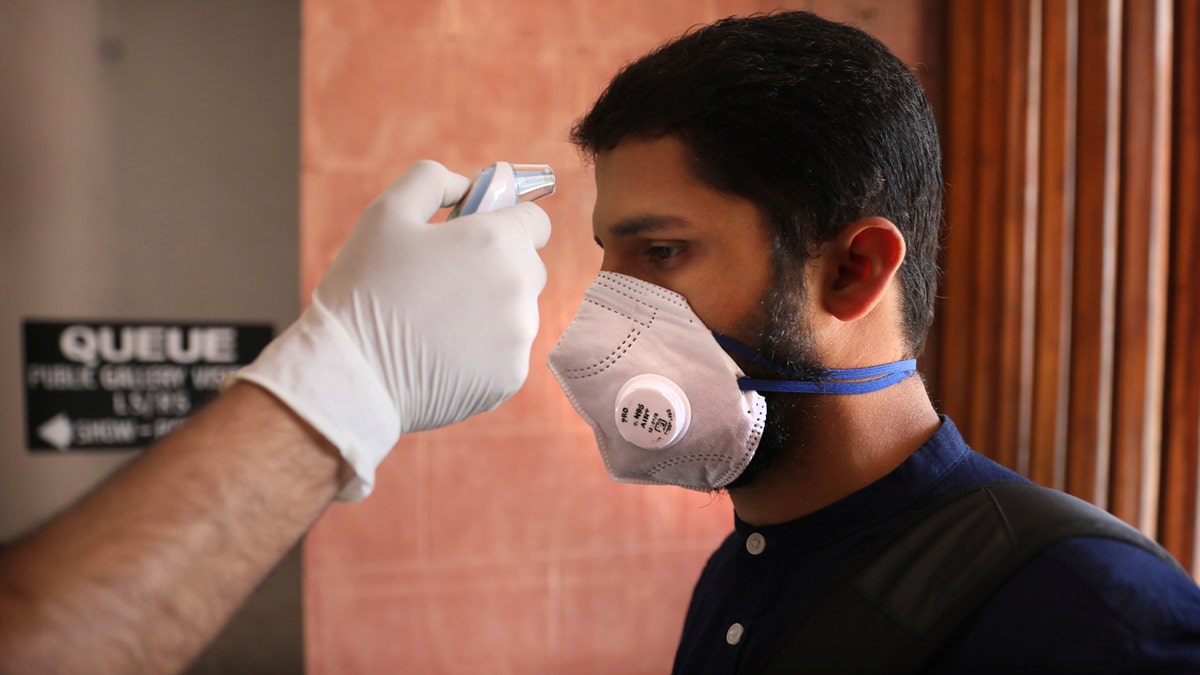
A security official checks the temperature of a visitor as a precaution against the new coronavirus at the Parliament House in New Delhi, India, Tuesday, March 17, 2020. (AP Photo/Manish Swarup)
In Mumbai, where some 18 million people live, officials authorized hospital and airport officials on Monday to stamp the wrists of those ordered to self-isolate with indelible ink reading “Home Quarantined," according to Reuters.
The branding on wrists of those stamped by officials displays the date that their personal quarantine ends.
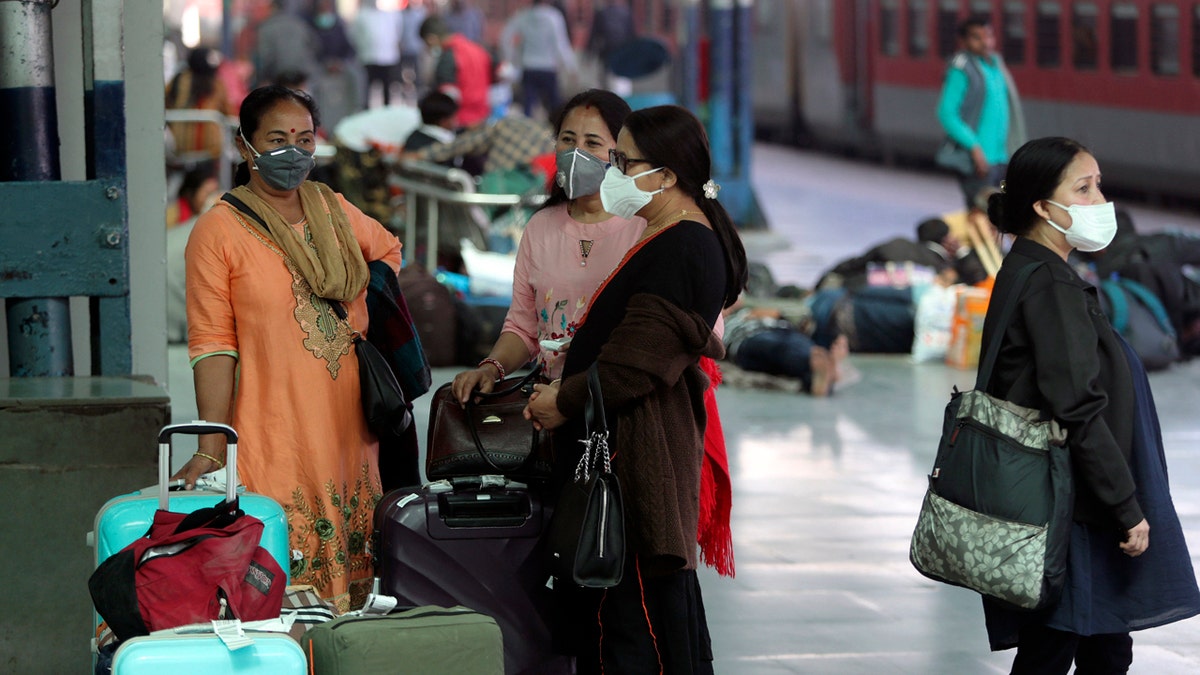
Indian passengers wearing masks as a precaution against the new coronavirus wait at railway station in Jammu, India, Tuesday, March 17, 2020. (AP Photo/Channi Anand)
The state of Maharashtra, where Mumbai is located, has been the hardest hit in India with 39 confirmed coronavirus cases, or roughly a quarter of the cases in the country. Authorities have confirmed 126 cases so far in the country, most of which have been “imported” — linked to foreign travel or direct contact with someone who caught the disease abroad.
Balaram Bharghava, who heads the Indian Council of Medical Research, India's top medical research body, has said that guidance by the World Health Organization for countries to test as many as people as possible is “premature” for India, where community transmission hadn't yet been detected.
"Therefore it creates more fear, more paranoia and more hype," he said Tuesday.
CORONAVIRUS: WHAT YOU NEED TO KNOW
Indian authorities have justified their strict testing limits as a way to keep a deluge of people from demanding tests that would cost the government money it needs to combat other diseases.
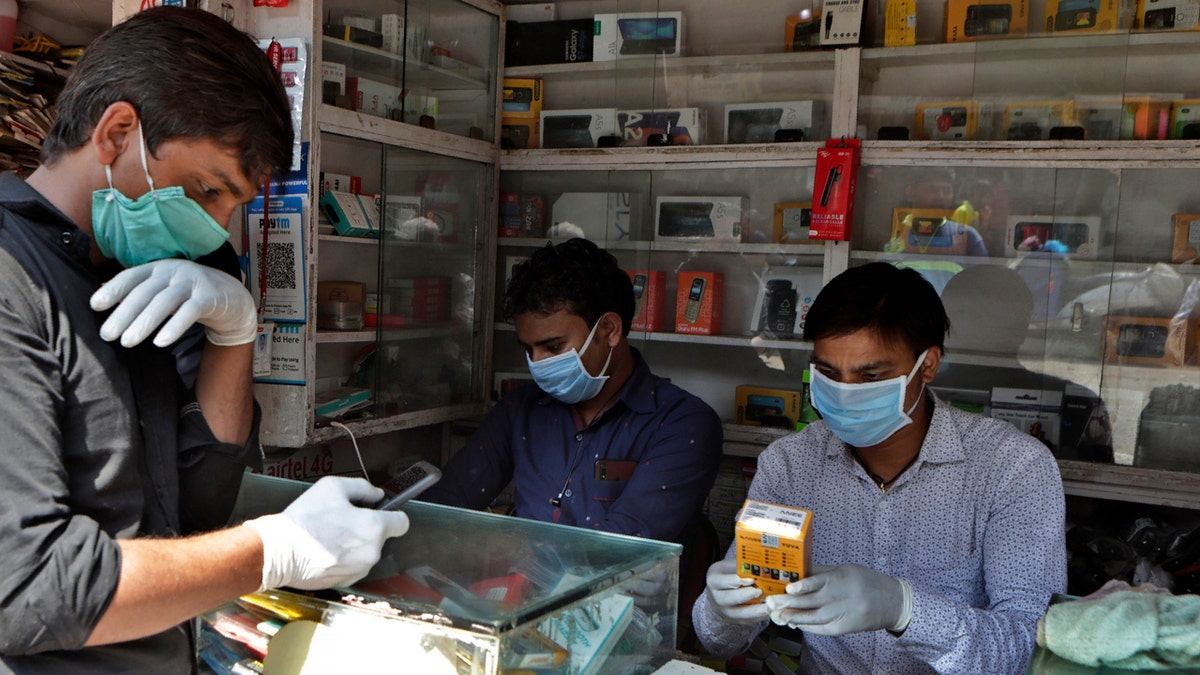
Indian mobile vendors wear protective masks and gloves as a precaution against a new virus at their outlet in Mumbai, India, Tuesday, March 17, 2020. (AP Photo/Rajanish Kakade)
Each test is free for patients, but costs the government about 5,000 rupees or $67, according to the Associated Press.
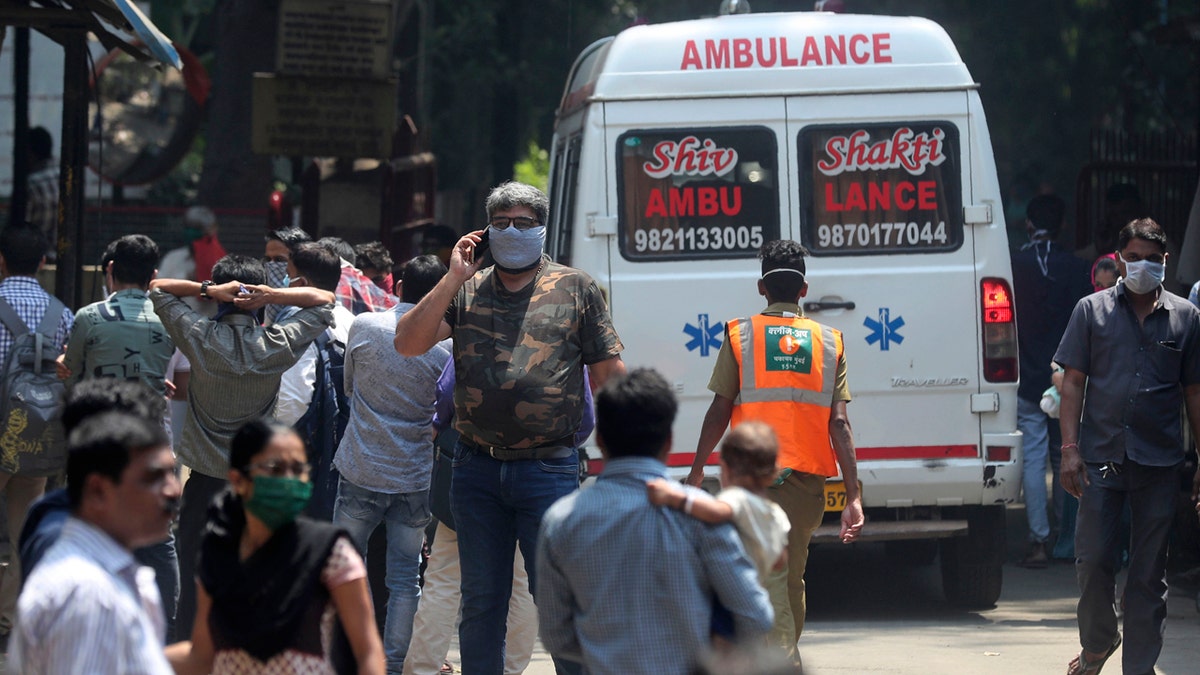
People wearing masks walk outside a special ward for possible COVID-19 patients at a hospital in Mumbai, India, Tuesday, March 17, 2020. (AP Photo/Rafiq Maqbool)
India is conducting only about 90 tests per day, despite having the capacity for as many as 8,000. So far, 11,500 people have been tested, according to the Associated Press.
CLICK HERE FOR THE FOX NEWS APP
In India, where more than 400 million people live in crowded cities, including many without regular access to clean water, the disease could spread rapidly, experts have warned.
“Given the pattern of disease in other places, and given our low level of testing, then I do think that community transmission is happening, ” Dr. Gagandeep Kang, the director of the Translational Health Science and Technology Institute, told the AP.
The Associated Press contributed to this report.













